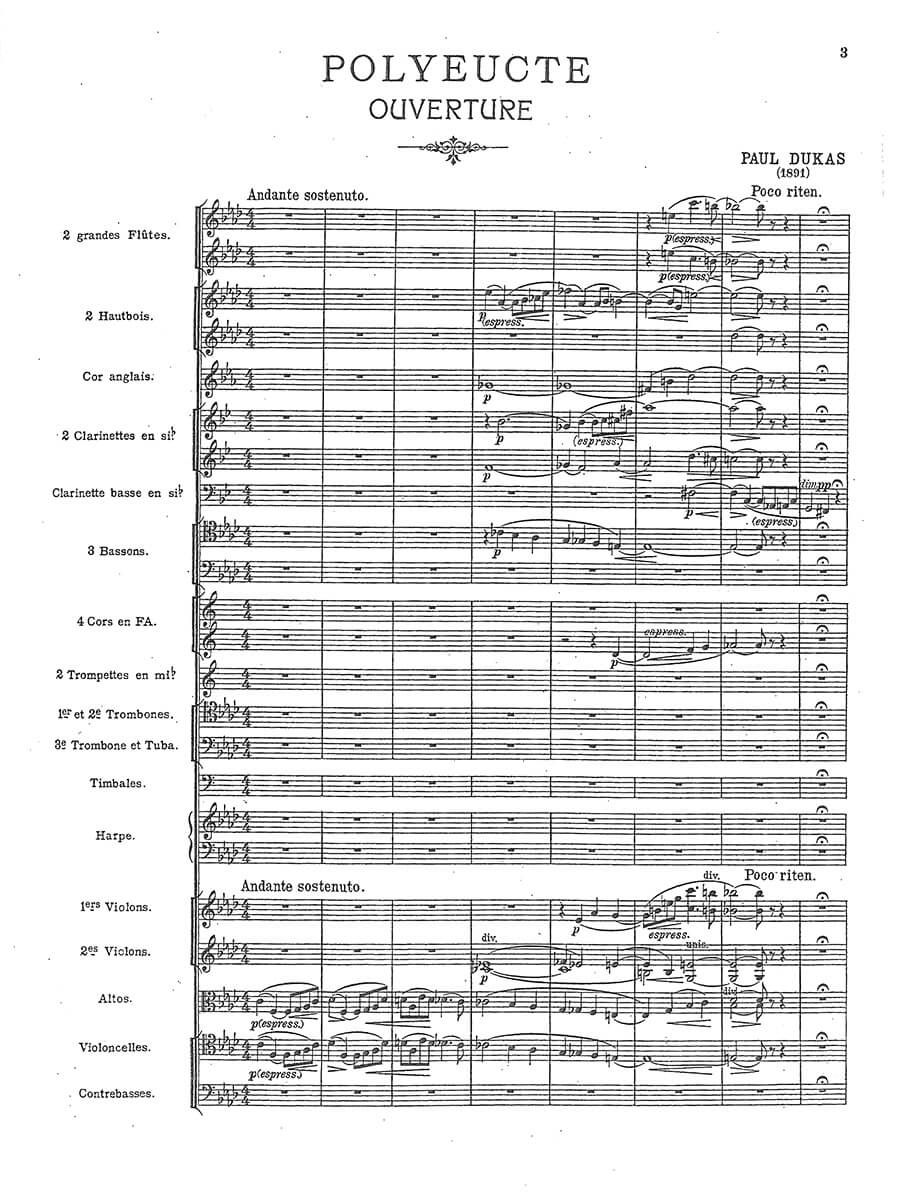Polyeucte, overture for orchestra
Dukas, Paul
19,00 €
Preface
Paul Dukas
(b. Paris, 1 October 1865 — d. Paris, 17 May 1935)
Polyeucte
Overture for orchestra (1891)
Preface
Paul Abraham Dukas was a French musician who worked as a critic, composer, editor, teacher, and inspector of music institutions across France. He was the middle of three children. His mother was a pianist, and his father was a banker. The family was of Jewish descent, but seemed to focus more on the cultural life of Paris than on religious matters. Showing some musical talent in his adolescence, Dukas’ father encouraged him to enroll in the Conservatoire de Paris, which he did at the age of 16. It was here that Dukas began a life-long friendship with Claude Debussy, who was three years his senior. While Dukas was moderately successful as a student, the crowning Prix de Rome eluded him in four successive years. In 1886 and 1887, he did not reach the finals; in 1888 he submitted the cantata Velléda, and in 1889 he offered the cantata Sémélé, neither of which were chosen as the winning composition. Discouraged, Dukas left the Conservatoire to fulfill his military service. He returned to Paris and began a dual career as critic and composer in 1891.
With time, Dukas also became a music editor, working on modern editions of works by Rameau, Couperin, Scarlatti, and Beethoven. He returned to the Conservatoire to teach orchestration (1910-1913) and composition (beginning in 1928); he also taught at the Ecole Normale. Between these institutions, his students included Olivier Messiaen, Maurice Duruflé, and Jean Langlais. From 1910 until his death, he was also an inspector of music education for the provincial conservatories in France.
In the course of his long career, Dukas produced more than 400 critical essays; while many were reviews of particular works or performances, he often addressed more abstract, philosophical topics in his writings, which appeared in a wide variety of venues, such as the Revue hebdomadaire, Le Figaro, and the Revue musicale. As a composer, Dukas was not nearly as prolific: only a few dozen compositions have survived. His innate shyness and a strong perfectionism kept him from completing many of the projects he started, and near the end of his life he destroyed the manuscripts of numerous works in various states of completion. …
Read full preface > HERE
Score Data
| Edition | Repertoire Explorer |
|---|---|
| Genre | Orchestra |
| Size | 210 x 297 mm |
| Printing | Reprint |
| Pages | 52 |
